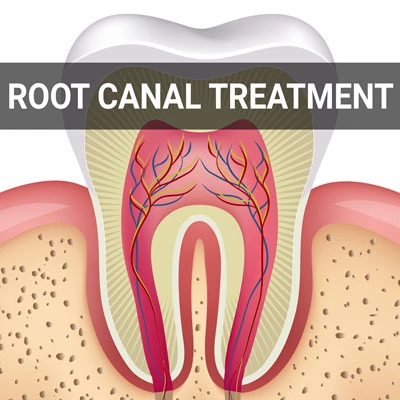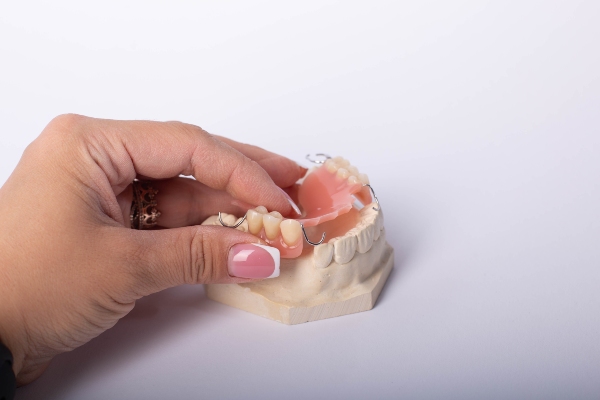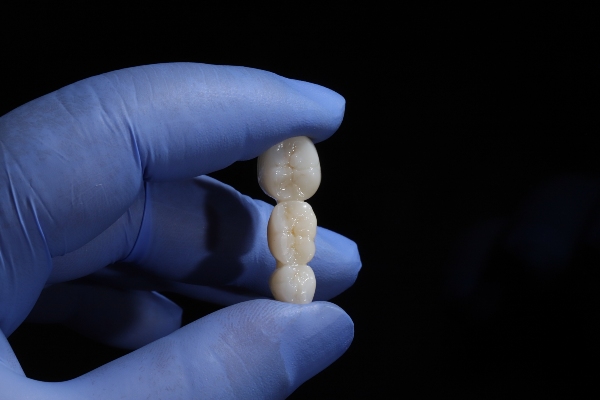Endodontic Surgery New Rochelle, NY
In some cases, patients may have an issue with a tooth that may not be apparent at a glance or even in an X-ray. A non-surgical root canal cannot access various cases like calcium deposits or root issues. In these cases, endodontic surgery may be the ideal solution.
At Zen Dentistry Westchester in New Rochelle, we provide endodontic surgery services to those in the local and surrounding area. We can help patients maintain their oral and overall health. We will guide clients through the process, answer any questions they may have, and ensure they receive the care they need.
The various applications and benefits of endodontic surgery can improve the functionality and overall health of the mouth. Call our office at (914) 826-8363 to make an appointment and learn more.
Understanding Endodontic Surgery
When a patient's tooth has become badly decayed or infected, they may need to undergo a root canal to salvage the tooth. According to WebMD, most root canals are successful; however, several complications may emerge that require moving onto endodontic surgery. Endodontic surgery may refer to any surgery that attempts to salvage a patient's tooth after non-surgical options have failed or are not available. This can help prevent the need for tooth extraction and replacement.
“Endodontic surgery may refer to any surgery that attempts to salvage a patient’s tooth after non-surgical options have failed or are not available.”
When to Get Endodontic Surgery
Several different situations may require endodontic surgery. Here are some of the most comon:
Calcification
Sometimes, non-surgical root canal procedures are not an option due to excessively narrow canals in the teeth. This happens when calcium deposits make it impossible for the non-surgical instruments to reach the end of the root. In such cases, endodontic surgery is necessary to clean and seal the remainder of the canal.
Damage
Often, damage to the root surfaces or surrounding bone cannot be adequately treated with non-surgical solutions. Endodontic surgery can remove the necrotic or damaged pulp of the tooth.
Diagnosis
Patients who have persistent symptoms of discomfort may undergo X-rays and other forms of non-surgical treatment to try to identify the problem. Because endodontic surgery examines the entire root, it can help identify tiny fractures or canals that can go otherwise undetected.
Retreatment
Root canals are usually complication-free; however, a tooth may become painful or diseased months to years after treatment. Endodontic surgery can address such matters of improper healing or infection.
According to the American Association of Endodontists, there are many different types of endodontic surgery. Apicoectomy, a procedure that removes the tip of the root, is the most common. Other procedures include dividing a tooth in half, repairing an injured root, and removing one or more roots.
“Endodontic surgery can remove the necrotic or damaged pulp of the tooth.”
Root Canal Versus Apicoectomy
A root canal is a somewhat common procedure in the dental world. When a tooth becomes decayed or infected, dentists often opt to treat it with a root canal. The procedure involves removing the pulp of the tooth, which contains tissue and nerves. Once the dentist removes the material, they clean and seal the tooth.
Another endodontic procedure is an apicoectomy. Whereas a root canal mainly takes place on the upper part of the tooth, an apicoectomy takes place at the root of the tooth. This surgery removes infected or inflamed tissue in the bony area around the root and uses the end of the root as an access point. Patients may receive this procedure if a root canal is not possible or if a previous root canal failed and is causing issues in and around the tooth.
“Whereas a root canal mainly takes place on the upper part of the tooth, an apicoectomy takes place at the root of the tooth.”
Check out what others are saying about our dental services on Yelp: Endodontic Surgery in New Rochelle, NY
What to Know About Endodontic Surgery
Knowing what to expect from an endodontic surgery can better prepare patients for the procedure. Patients can rest easy knowing that modern technologies such as digital imaging and operating microscopes allow endodontic surgeons to work more quickly and successfully than ever before.
Before endodontic surgery, the surgeon will inject a local anesthetic in the patient's gums. An apicoectomy, also known as a root-end resection, is the most well-known type of endodontic surgery. During this procedure, the surgeon will open the gum tissue near the tooth to expose the underlying bone. At this point, the surgeon will remove any inflamed or infected tissue, along with the end of the root.
“Patients can rest easy knowing that modern technologies such as digital imaging and operating microscopes allow endodontic surgeons to work more quickly and successfully than ever before.”
Questions Answered on This Page
Q. What is endodontic surgery?
Q. Do I need endodontic surgery?
Q. What can I expect during endodontic surgery?
Q. What is it like to recover from endodontic surgery?
People Also Ask
Q. What is the difference between endodontists and dentists?
Q. What are the benefits of a root canal?
Q. Are pain and tenderness when touching the teeth or chewing a sign of a problem?
Q. What are the symptoms of a cracked tooth?
Q. What are some of the signs indicating a need for tooth extraction?
Recovering After Endodontic Surgery
Toward the end of the procedure, some patients may receive a small filling to seal the end of the root canal. They may also require some stitches or sutures to assist in tissue healing. The bone in the surrounding area of the root will continue to heal over the next few months. Most patients can return to normal activities as soon as one day after surgery, and any post-surgical discomfort tends to be mild and easily manageable.
“Most patients can return to normal activities as soon as one day after surgery, and any post-surgical discomfort tends to be mild and easily manageable.”
Frequently Asked Questions
Q. Why would I need endodontic surgery?
A. Endodontic surgery is an effective treatment option for several tooth issues. It can help with diagnoses, damage from a failed root canal, calcium deposits, small cracks, and issues with the root surface. If someone is experiencing any of these problems, endodontic surgery may be able to save their tooth.
Q. What is involved in the endodontic surgery process?
A. A patient receiving this treatment will first go through a pre-surgery consultation, where the dentist will assess their situation and give them some preparatory guidelines. On the day of the surgery, the dentist will prepare the patient and perform the procedure. After this, the staff may take some X-rays and will likely provide some post-surgery care instructions.
Q. What is a root canal?
A. A root canal is a relatively common type of endodontic procedure that removes infected or inflamed pulp within the tooth. A dentist accesses the tooth from the crown to remove the affected tissue, then cleans, shapes, and seals it. Typically, dentists will also place a crown on the tooth as a final step to the procedure.
Q. What is an apicoectomy?
A. An apicoectomy is an endodontic procedure that involves the removal of inflamed or infected tissue in the area surrounding the root. Although the process is similar to a root canal, it is different in that it deals with the area near the base of the root rather than the crown of the tooth. Additionally, an apicoectomy can help treat a failed nonsurgical root canal.
Q. How do I know if I need endodontic surgery?
A. There are various oral symptoms that may suggest a patient needs endodontic surgery. These can include sensitivity, continuous pain, pain when touched, sudden discoloration, and a bump or redness on part of the gums. These may or may not be indicators that require endodontic treatment, so it is advised that people experiencing symptoms first contact their dentist for an assessment.
Endodontic Terminology
Learn More Today
Endodontic surgery can vastly improve many patients' overall dental health. At Zen Dentistry Westchester, we can help figure out the best treatment plan for you. Call us today at (914) 826-8363 to schedule an appointment.
Helpful Related Links
- American Dental Association (ADA). Glossary of Dental Clinical Terms. 2025
- American Academy of Cosmetic Dentistry® (AACD). Home Page. 2025
- WebMD. WebMD’s Oral Care Guide. 2025
About our business and website security
- Zen Dentistry Westchester was established in 2022.
- We accept the following payment methods: American Express, Cash, Check, Discover, MasterCard, and Visa
- We serve patients from the following counties: Westchester County
- We serve patients from the following cities: New Rochelle, Larchmont, Mt Vernon, Pelham, Scarsdale, Bronxville, Mamaroneck, White Plains, Yonkers, Harrison, Rye, Eastchester, Greenwich, Stamford and Port Chester
- Norton Safe Web. View Details
- Trend Micro Site Safety Center. View Details
Back to top of Endodontic Surgery













